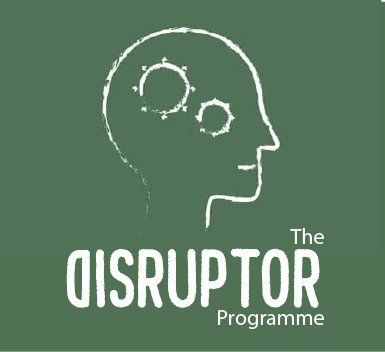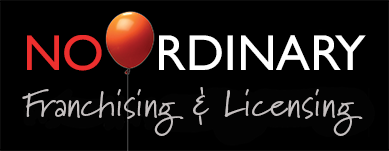The father of management theory, Peter Drucker, was supposed to have said:
“Culture eats strategy for breakfast.”
There's a growing body of evidence that organisational culture, rather than just being some woo-woo stuff that doesn't really matter, can have a direct impact on the bottom line. So what is culture and what can you do to enhance it in your franchise organisation?
The title of this article may sound disingenuous. But really, what use is culture if doesn't really matter to the performance of your business? Or is it, as some management gurus have suggested, the invisible glue that holds organisations together, trumping even strategy?
“Anybody can copy strategy but you can't copy culture”
Culture is more important than strategy, according to the chairman of the Inspired Thinking Group, René Carayol, because “anybody can copy strategy but you can't copy culture”. He defines culture as “what happens when the CEO leaves the room” and “the way we get things done around here.”
“The most important thing about culture is that it's the only sustainable point of difference for any organisation,” he says. “So why would you leave it untended?”
Why indeed? But I've come across plenty of franchise organisations that have all the culture of a dish cloth.One of the reasons may be that culture, being difficult to define let alone measure, isn't well understood.
"The people, the leadership, and the ideas ultimately drive the numbers”
“When I talk to Wall Street ... never do you get people asking about the culture, about leadership, about the people in the organisation," says Stephen Sadove, chairman and chief executive of Saks, in a New York Times interview. “Yet it’s the reverse, because it’s the people, the leadership, and the ideas that are ultimately driving the numbers and the results.”
The question is, if culture is difficult to measure, how do you manage it? A culture survey conducted by Katzenbach Center found that 84% of executives said culture was critical to their business success, but only 55% thought their own cultures were managed effectively.
Culture comes down to three questions, according to Nilofer Merchant's article Culture Trumps Strategy, Every Time in the Harvard Business Review:
- Do we trust each other?
- Disagreements mean what?
- Who cares about the baby?
The “baby” in the third question refers to business performance, and Merchant's point is that if business performance isn’t co-owned by everyone in the business, things can easily fall through the cracks.
Merchant's description of culture is amongst the best I've come across:
“How we get things done drives performance. These issues of trust, conflict resolution, and co-ownership are foundational for how a team gets work done. Culture is the set of habits that allows a group of people to cooperate by assumption rather than by negotiation. Based on that definition, culture is not what we say, but what we do without asking. A healthy culture allows us to produce something with each other, not in spite of each other. That is how a group of people generates something much bigger than the sum of the individuals involved.”
Because of the broad geographic coverage and relationship-drive nature of franchising, it could be argued that culture plays a more important role in the performance of franchises than it does it many other types of organisations. So how can you create a culture that drives performance in your franchise?
1. Be clear about what you stand for
Franchise culture develops with or without conscious effort. Most successful franchises have been founded with a purpose greater than simply making money, but that purpose and the culture that grows from it must be reflected in the beliefs and behaviours of everyone in the organisation, from the founder down. Yet surveys have shown that most franchise executives and franchisees cannot even define their franchise’s culture, much less figure out how to build it throughout the network.
2. See culture as a journey
Culture is not something that just is - like any growing thing, without proper care and attention, it will just wither away. Franchises such as New Zealand’s Hell Pizza grew quickly because its out-there culture gave it a strong point of difference from Domino's and Pizza Hutt, and was lived and breathed by the franchise founders and franchisees. But when the franchise was later sold, the new owners had no idea how to keep fostering that unique culture, and ended up selling it back to the founders for much less than they’d paid for it.
3. Recruit believers, not just franchisees
Hell Pizza was initially successful because they were picky about who they would accept as franchisees. But many start-up franchises make the mistake of taking on just about anybody. Australian physiotherapy franchise Back in Motion was founded with the vision of giving back to the communities it serves. “But we made some mistakes as a start-up as we were chasing credibility and viability,” says founder Jason Smith. “Sometimes you have to say no (to new franchisees), so you can then say yes to the right ones.” Back in Motion found that their culture attracted like-minded people who wanted to be a part of what they were doing, avoiding the need to spend vast amounts on franchisee recruitment.
A “tribal” culture is so important to Hawaiian coffee and smoothie franchise Maui Wowie that they involve all of their head office people in interviewing potential franchisees. “We take on people who fit into our culture,” says CEO Mike Weinberger. “One person can make a toxic atmosphere. They have to have the right mindset and fit in well. Our staff filters out the jerks.”
4. Build a relationship of mutual respect, trust and interdependence
“It's not about you or me, it's about us” is an attitude that Jason Smith attributes as a big part of his success in building the 60-plus Back in Motion franchise network. “It stopped being just my brand when I brought you all in,” he tells franchisees, reinforcing the fact that culture might start at the top, but it is reinforced at every level. Remember that culture is defined as “how we do things around here” whether the CEO is in the room or not. In a franchise, that comes down not only to a common purpose and values, but also to the quality of the relationships within the organisation.
5. Give your franchisees “ownership”
Great franchise organisations take their relationships with their franchisees up a further notch again. Sure, their cultures are defined by purpose, shared values, trust, respect and organisational fit. But they also treat their franchisees as partners in the success of the overall organisation, developing engagement and “ownership” where their franchisees are given a real say in the direction and development of the franchise. Even McDonald’s, which has been slammed recently for being dictatorial in its approach to franchise management, involves franchisees in its procurement and product development processes.
This article was written by me, Robin La Pere of No Ordinary Business and Franchise Consultants.
I have a corporate and franchising background, with experience in leadership and team culture development. I offer a range of services to help you enhance your franchise's organisational culture, including franchisee satisfaction surveying, franchise needs assessment, franchise training and development, leadership coaching and mentoring, and franchise re-engineering.
I am based in Auckland, New Zealand, but work with clients all over the world. To arrange for a free Initial Consultation, no matter where you're based, contact me at robin@noordinary.co.nz or use the Contact Form.
Need to futureproof your business?
I offer these services to help you manage disruption, prevent stalling and promote innovation in your business:
- Threat and opportunity evaluation
- Business model generation
- Strategy planning
- Key business driver analysis and development
- Conference and seminar presentations
- Innovation workshop facilitation
- Business improvement
- Business re-engineering
- ‘The Disruptor’ Programme (see below)

Are you facing new or greater competition? Is your industry being disrupted? Is your business growth in danger of stalling?
The best way to predict the future is to create the future. In today’s fast-changing world, it’s disrupt or be disrupted. The good news is that small to medium sized businesses can be more innovative and agile than large corporations. The Disruptor Programme has been developed specifically to help SME leaders to:
- empower them with the thinking and practical skills to face change and lead a more agile and innovative business
- gain insights in how their customers see value and where opportunities exist to take advantage of this
- examine the company’s competencies and culture in order to identify opportunities to improve and innovate
To arrange a free personal Initial Consultation with me on how The Disruptor Programme can help you to futureproof your company, contact me now on +64 9 360 6063 or Skype Noordinary1262 or send me your email address and I will get back to you within 24 hours.



